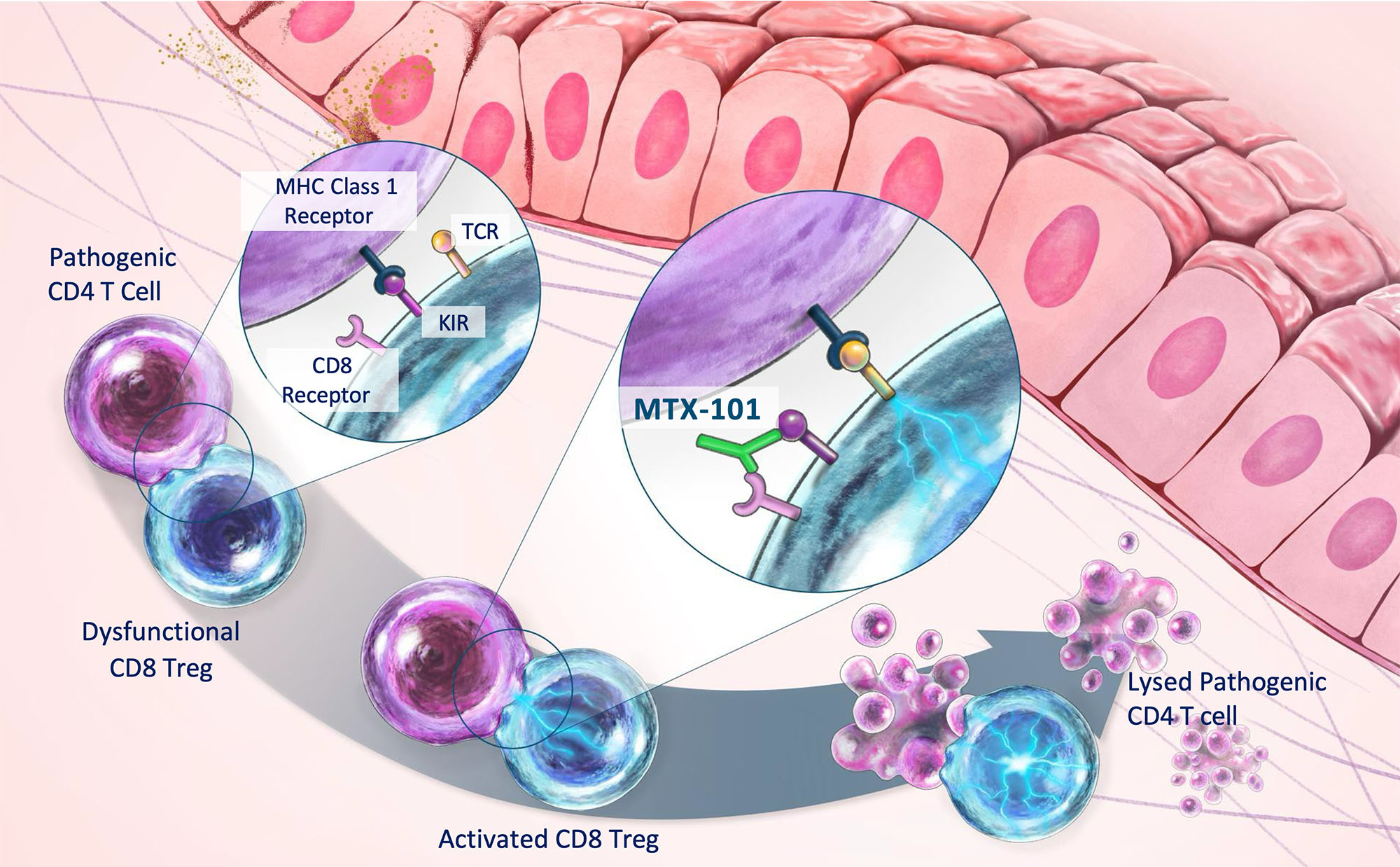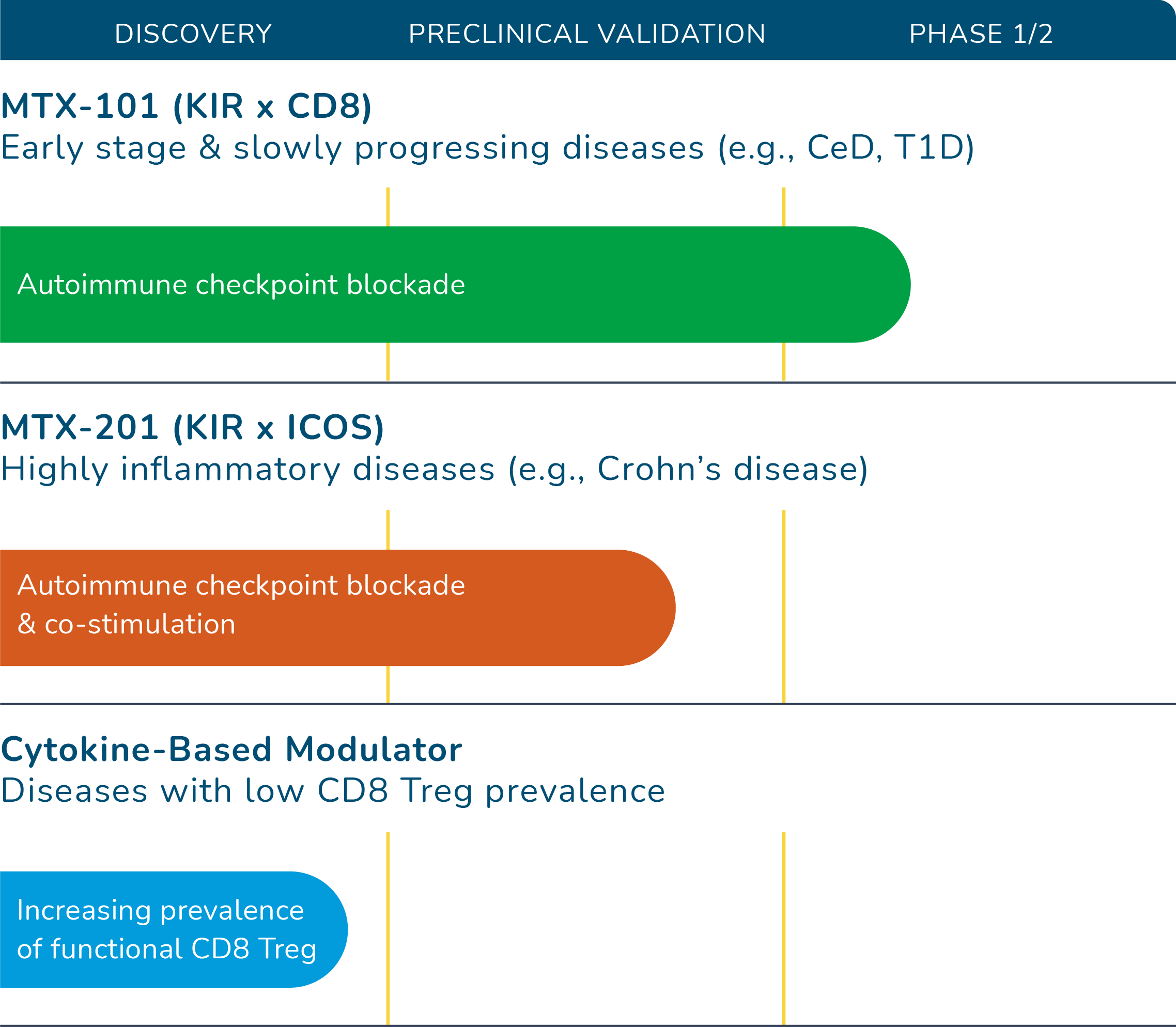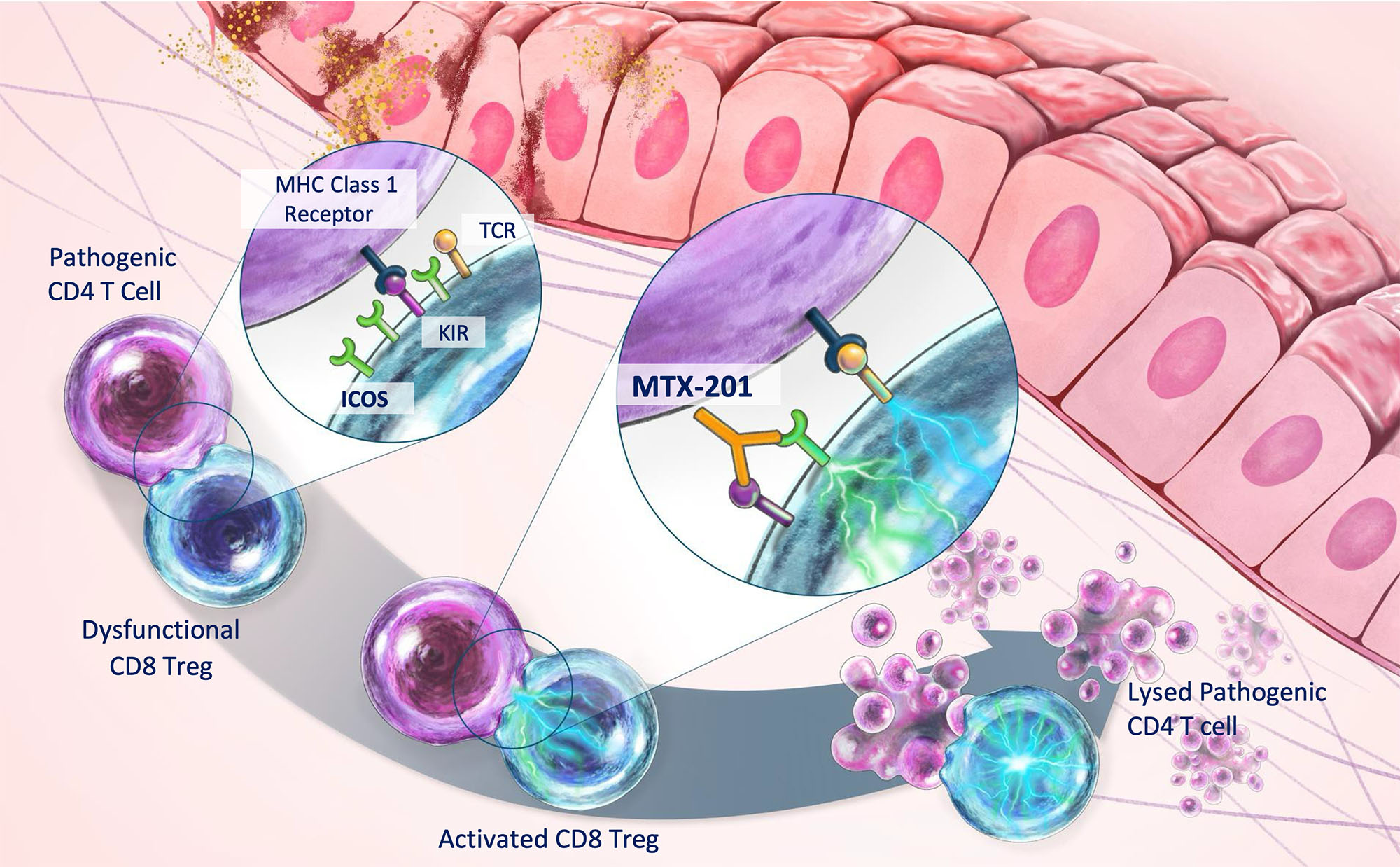
Pipeline
We are advancing a pipeline of first-in-class CD8 Treg modulators designed to restore durable immune homeostasis in patients with autoimmune inflammatory diseases.
Pipeline


CeD: celiac disease; T1D: type 1 diabetes.
Learn more about our programs
MTX-101 (KIR x CD8)
MTX-101 is a bispecific autoimmune checkpoint inhibitor. It’s dual configuration binds the CD8 Treg receptors, KIR and CD8, to selectively activate CD8 Treg and enhance MTX-101’s specificity, respectively. MTX-101 is designed to restore CD8 Treg functionality and the cytolytic elimination of pathogenic CD4 T cells.
MTX-101 is being developed for early stage and slowly-progressing autoimmune diseases, such as type 1 diabetes mellitus and celiac disease.
MTX-201 (KIR x ICOS)
MTX-201 is a bispecific antibody that restores and potentiates the functionality of CD8 Treg via inhibition of KIR and activation of the ICOS costimulatory receptor, respectively, both expressed on CD8 Treg.
It is being developed for the treatment of highly inflammatory autoimmune diseases, such as inflammatory bowel diseases (IBD; a term used to encompass two chronic and often life-threatening diseases of the gastrointestinal tract: Crohn’s disease and ulcerative colitis).

